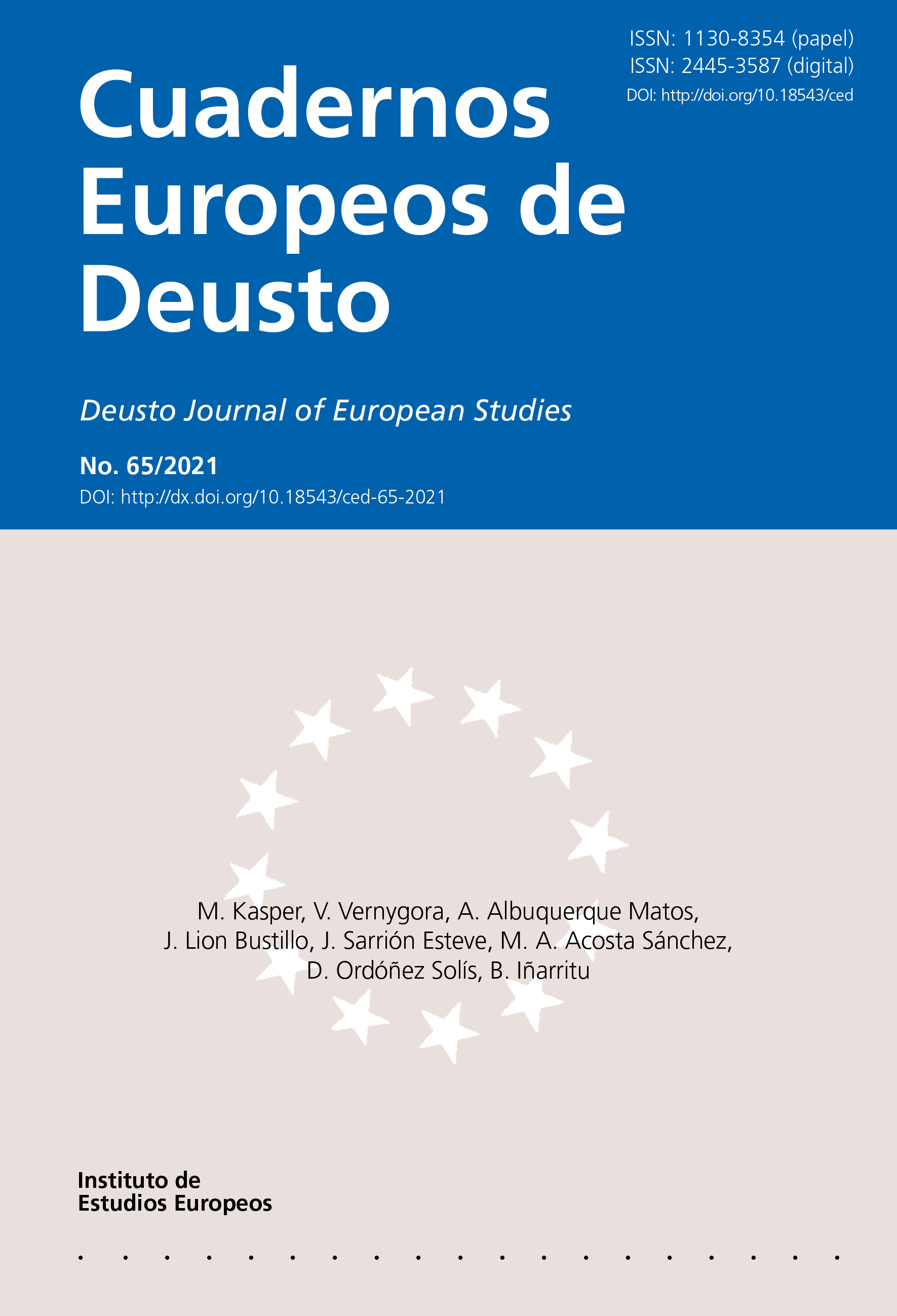The European Union, Lebanon, and the Syrian refugees
Abstract
The purpose of this article consists of assessing the coherence of the European Union external action between its relations with Lebanon and its policy towards the Syrian refugees. With this objective, I will contrast the objectives of the Common Foreign and Security Policy and those of the Area of Freedom, Security and Justice. The former is aimed at promoting stability in Lebanon and spreading to that country the European views of democracy, human rights and good governance. The latter wants the refugees to remain in neighbouring countries (like Lebanon) and prevent their arrival into Europe. The results of this work highlight that the presence of such a high number of refugees in a country with very limited resources, a clientelist and inefficient public administration, and an unstable political system is leading to open tensions that will grow if those refugees remain in Lebanon indefinitely. Therefore, the obsession for treating the refugees as a security threat is weakening the coherence of the EU external action and undermining the achievement of other objectives.
Received: 18 November 2020
Accepted: 4 May 2021
Downloads
The author grants to the Publisher the distribution, public communication, and reproduction rights of her/his work subject of publication in Deusto Journal of European Studies (DJES), whichever the media may be, including the permission to include it in the databases where this Journal is indexed and in the institutional repository of the Universidad de Deusto.
Upon its publication, the content of any Issue of Deusto Journal of European Studies (DJES) can be accessed, read, downloaded, copies, and distributed freely for non-commercial purposes and in accordance with any applicable copyright legislation.
The content of Deusto Journal of European Studies (DJES) can be subsequently published in other media or journals, as long as the author clearly indicates in the first footnote that the work was published in Deusto Journal of European Studies (DJES) for the first time, indicating the Issue number, year, pages, and DOI (if applicable). Any other use of its content in any medium or format, now known or developed in the future, requires prior written permission of the copyright holder.
The content of the work published in Deusto Journal of European Studies (DJES) is each author's sole responsibility. The authors assume the responsibility of obtaining all the necessary licenses for the reproduction in their manuscripts of any text, material or illustration coming from another author, institution or publication. The liabilities that may arise from complaints for publishing plagiarised articles are the sole responsibility of the author.


3.jpg)
2.jpg)
2.jpg)
2.jpg)
2.jpg)
2.jpg)







